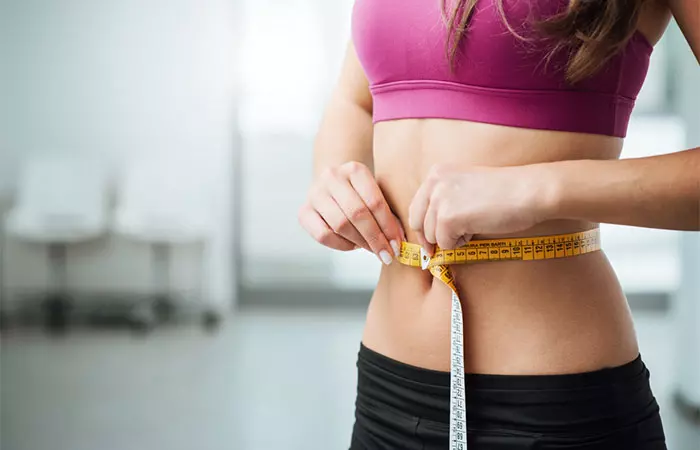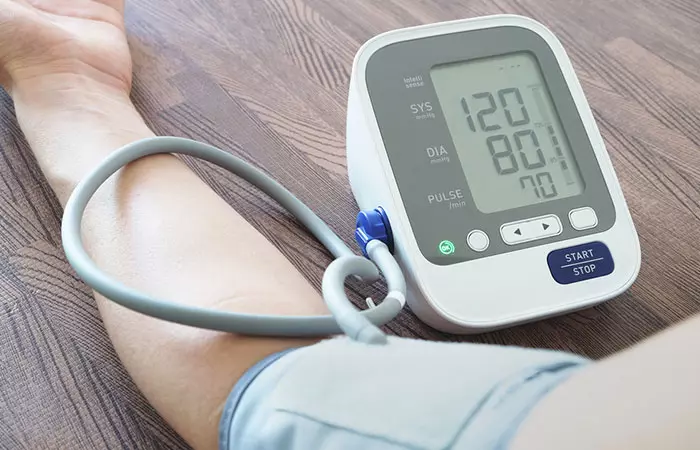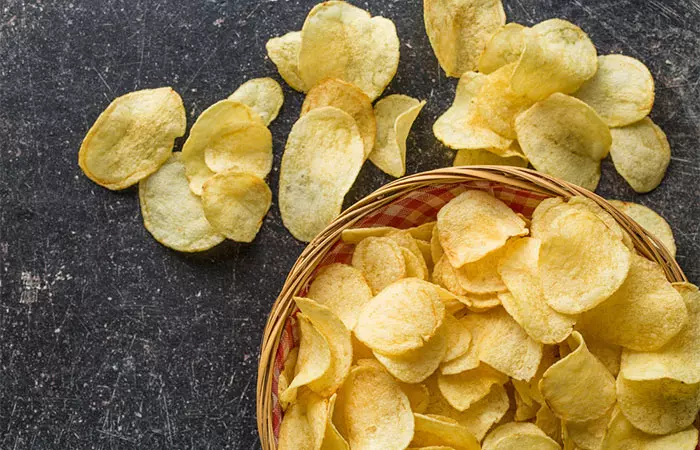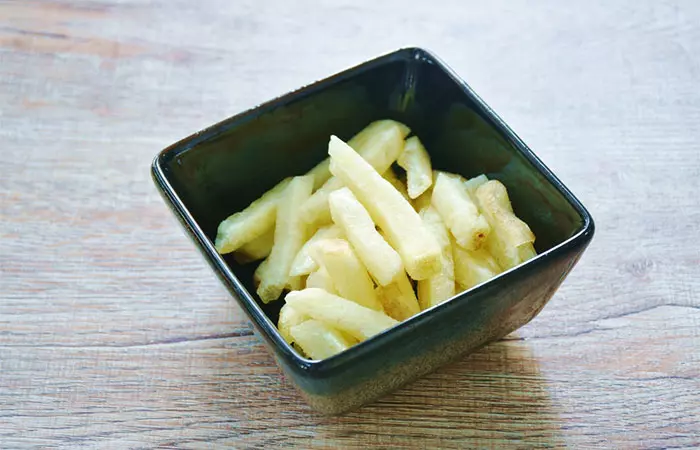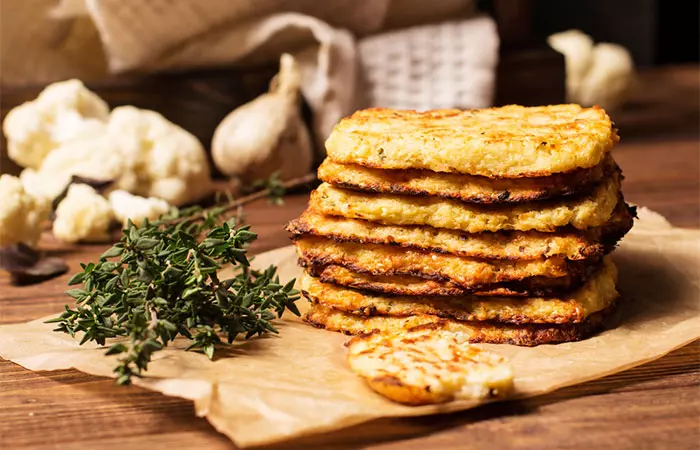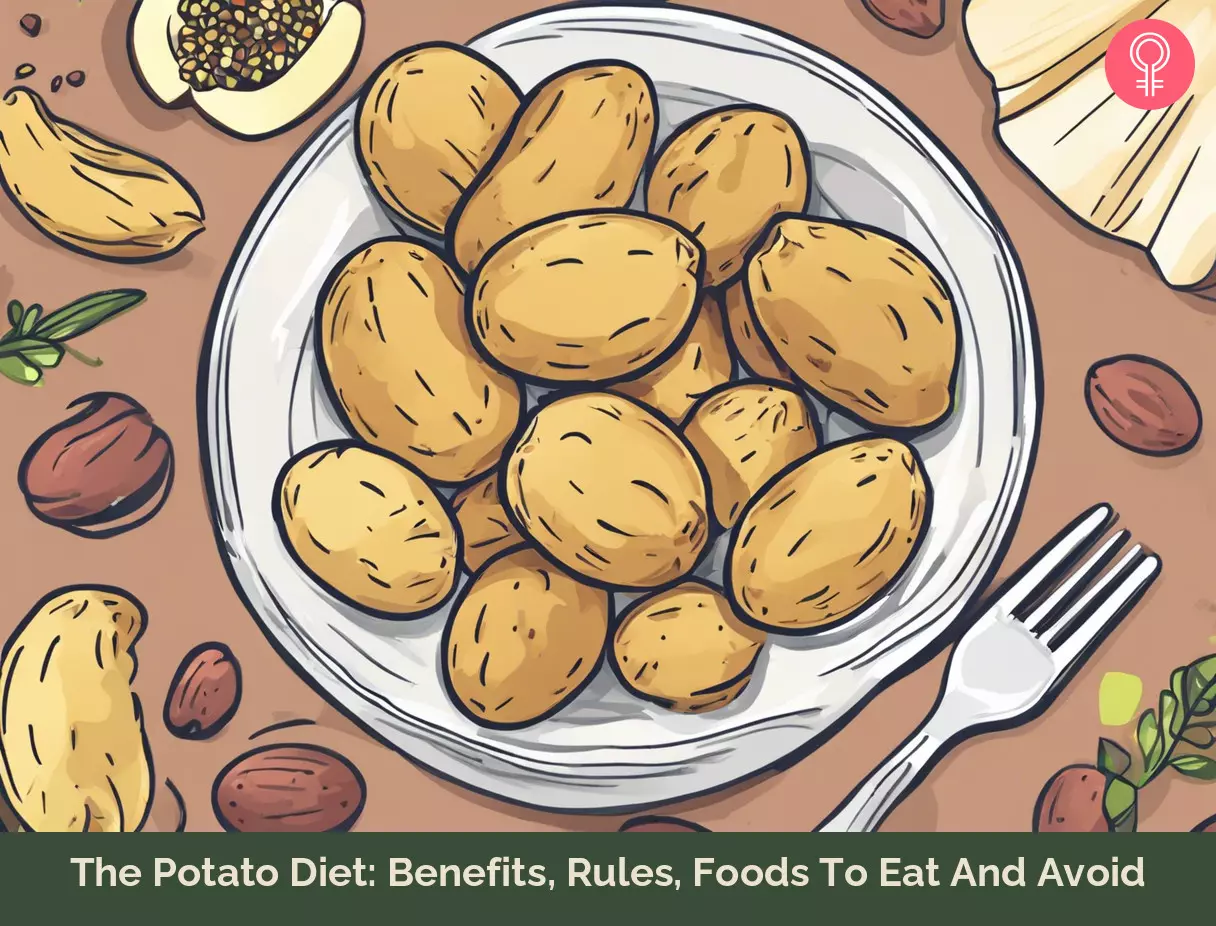What Is The Potato Diet?
The potato benefits our health in a variety of ways, making it a staple in many diets. The potato diet is a short-term restrictive diet that is claimed to promote rapid weight loss. The idea of an all-potato diet was first introduced in 1849, but Tim Steele’s 2016 book ‘Potato Hack: Weight Loss Simplified’ revived it. Potatoes are the main source of calories in this diet. This popular fad diet is said to help you lose 0.45 kg weight by consuming potatoes while avoiding all other foods for three to five days. Though most people claim that this diet has helped them lose weight and strengthen their immune system, there is no scientific evidence to prove those claims. Now that we have explored what exactly the potato diet means, let’s delve into the specific rules of this diet plan in the next section.
Rules Of The Potato Diet
There are several variations in the potato diet. However, according to Tim Steele’s book, there are some potato diet rules you need to follow:
Not all types of potatoes are allowed in the potato diet. Only white potatoes (russet potatoes) are allowed. Eat only plain, cooked potatoes for three to five days. Eat only 2-5 pounds of potatoes each day. The potatoes can be prepared in various ways, like baking, boiling, steaming, or mashing. Avoid frying. Avoid using high-calorie toppings such as butter, cheese, ketchup, or seasonings. Only drink water, plain tea, and black coffee without any additives. Salt is acceptable, but try to avoid it. Light exercises, like walking and cycling, are recommended. Avoid eating highly processed potato chips and French fries. You can continue your usual medications as prescribed by your doctor, but avoid using dietary supplements.
These are the specific guidelines that are associated with the potato diet. Let’s now discuss how this dietary plan helps with weight loss in the following section.
Potato Diet For Weight Loss
The potato diet is specifically designed for weight loss. While there is not enough studies done on the potato diet, research shows that diets that restrict calories may help you lose weight (1). One study published in the Endocrinology and Metabolism Clinics of North America journal found that lower fat and calorie intake was linked with weight loss (2). People who follow the potato diet only eat 2-5 pounds of potatoes per day, which is around 530-1300 calories. This is less than the average adult intake, which is generally around 2000 calories a day for women and 2500 calories for men (3). Potatoes contain potato protease inhibitor IIi A naturally occurring enzyme found in potatoes that affects the digestion process by inhibiting the breakdown of proteins. , which may reduce your appetite and decrease hunger levels (4). In addition, following a very-low-calorie or low-fat diet may reduce body weight (5). Now, let’s take a look at the other purported benefits of the potato diet.
Other Health Benefits Of The Potato Diet
May Improve Gut Health
Potatoes are high in dietary fiber that may support a healthy gut microbiome by providing probioticsi Live microbes that are believed to provide several health benefits if consumed in adequate quantities by improving your gut microbiota. to feed beneficial gut bacteria (6), (7).
May Lower Blood Pressure
Potatoes are rich in potassium, which may help regulate blood pressure levels in hypertensive individuals (8). But, it is important to note that there is not enough verifiable scientific data to prove that following the potato diet offers these benefits. The information listed above is based on research done on the health benefits of potatoes. So what can you eat while following this diet? Scroll down to find out!
Foods To Eat On The Potato Diet
White potatoes (russet potatoes) are the only food you can eat on this diet. But you can prepare them in different ways:
Raw potatoes Boiled potatoes Baked potatoes Steamed potatoes Mashed potatoes (without milk, butter, oil, cream, etc.) Oven-baked, oil-free French fries Oven-baked hash browns
You cannot include all types of potatoes and toppings in your diet. Let’s find out what to avoid in the potato diet in the next section.
Foods To Avoid On The Potato Diet
You cannot eat potato in all its types and forms on the potato diet. Here are some potato types and products to avoid:
Sweet potatoes Yams Sauces and condiments Seasonings (except salt) Vegetable or meat toppings Fried potatoes (like French fries and potato chips)
If you want to get the most out of a potato diet, you need to follow it correctly. Scroll down to find out some effective tips for preparing for this diet.
Tips To Follow The Potato Diet
Here are some tips to consider if you want to try this diet:
Opt for the right (white) potatoes to start your diet. Try different cooking techniques (like baking, steaming, or mashing) rather than always eating plain potatoes. Pay attention to your hunger signals and only eat until you are full and not stuffed. Do not eat just because it is mealtime. Getting enough calories is important for diet adherence, preventing fatigue or hunger, and maintaining energy levels. Monitor your portion sizes to control your calorie intake because overeating potatoes may lead to weight gain. Drink enough water throughout the day to stay hydrated and control your appetite. Monitor your progress and keep track of your energy levels and weight while you are on the potato diet.
Note: If you experience any adverse effects, stop following this diet immediately and consider consulting a healthcare professional for further assistance. Planning your meals according to your dietary requirements makes the entire process more effective. The following sample menu can give you an idea.
3-Day Potato Diet Meal Plan
Day 1
Breakfast: 1 medium-sized boiled potato seasoned with a pinch of salt Lunch: 2 steamed potatoes Snack: 1 raw potato Dinner: Oven-baked, oil-free French fries
Day 2
Breakfast: 2 baked hash browns with one cup of plain tea Lunch: 2 medium-sized boiled potatoes, served cold Snack: 1 small baked potato Dinner: 2 plain, baked potatoes
Day 3
Breakfast: 2 boiled potatoes with one cup of black coffee Lunch: 2 medium-sized baked potatoes seasoned with a dash of salt Snack: 1 boiled potato Dinner: 2 medium-sized steamed potatoes
You can prepare potato recipes very easily at home. Scroll down to check out some recipes in the following section.
Potato Diet Recipes
1. Oven-Baked, Oil-Free French Fries
Ingredients
4-6 medium-sized russet potatoes Salt to taste
How To Prepare
2. Baked Hash Browns
Ingredients
2 medium-sized russet potatoes
How To Prepare These are some simple potato diet recipes you can try. But are there any risks associated with the potato diet? Scroll down to know more.
Side Effects Of The Potato Diet
The biggest drawback of the potato diet is that it cuts out all foods except potatoes. This could lead to two major adverse effects:
May Lead To Disordered Eating
The potato diet is extremely restrictive, and eating only potatoes for three to five days can be a difficult task. It may also lead to disordered eating and other unhealthy eating habits, like overeating (9), (10).
May Lead To Nutritional Deficiencies
Though potatoes are rich in potassium, magnesium, and vitamin C, they are low in other nutrients like sodium, calcium, and iron (11). Eating only potatoes, in turn, may lead to nutrient deficiencies due to an imbalance in your diet. So, why do some people choose to follow this novel diet while others steer clear of it? Find out in the next section.
Pros And Cons Of The Potato Diet
Pros
Easy To Follow: The potato diet is straightforward and appealing to those who prefer a basic approach to weight loss. Affordable: The cost of this diet is not too high as potatoes are one of the most affordable foods. Short-Term Reset: Some people adopt this diet as a short-term reset to end their unhealthy eating habits or cravings for processed foods.
Cons
Unsustainable: It can be monotonous and challenging to follow a diet consisting solely of potatoes for an extended period of time. In the long run, it can become unsustainable due to boredom and cravings for other food items. Short-Term Weight Loss: While some people may initially lose weight on a potato diet due to lower calorie consumption, this can be unsustainable over time and result in weight gain when switching back to a regular diet.
Can I follow the potato diet if I have diabetes? No. The intake of potatoes in any form, like boiled, baked, or mashed, is associated with insulin resistance and can elevate the risk of type 2 diabetes (12). Can the potato diet be used as a detox or cleanse? The potato diet does not provide all the necessary nutrients needed for optimal health. Also, there is no evidence that potatoes help in drawing out toxins. Can I customize the potato diet to make it more balanced? Yes. You can customize the potato diet to align with your nutritional goals with the help of a dietitian. In addition, pay attention to your portion sizes to manage your carb intake and monitor your blood glucose levels.
Illustration: The Potato Diet: Benefits Rules Foods To Eat And Avoid
Watch this captivating video by someone who actually followed the potato diet for five days to see what conclusions they came to.
